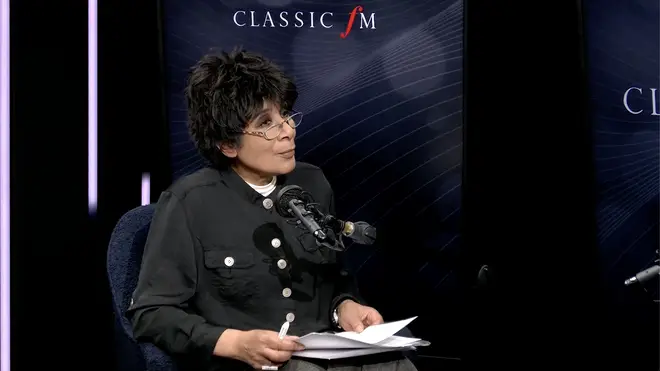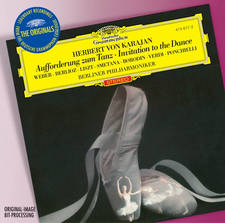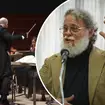Sir Keir Starmer says Beethoven’s choral anthem ‘Ode to Joy’ sums up the Labour party
24 November 2023, 14:29 | Updated: 24 November 2023, 21:32

Sir Keir Starmer: ‘Music has been degraded in schools – I want to see that turned around’
The Labour leader told Classic FM’s Moira Stuart that the finale to Beethoven’s great choral symphony sums up his party and invokes memories of the fall of the Berlin Wall.
Listen to this article
Asked on Classic FM’s interview programme Moira Stuart Meets about which piece of music would sum up the Labour Party, Sir Keir Starmer chose Beethoven’s ever popular Symphony No.9, especially the choral anthem ‘Ode to Joy’, the German composer’s famous call for togetherness and brotherhood of man.
“You’ve got the orchestra, you’ve got the voices, you’ve got this big combination,” Sir Keir told Moira, in an interview that will be broadcast in full on Sunday 26 November at 9pm. “This is very sort of Labour. Beethoven’s getting everybody onto the stage for this.
“I talk about a national mission for the next Labour government. This is a sense of something. It has got a sense of destiny and is hugely optimistic,” he added. “There are many others that I could associate with the Labour Party, but it’s that sense of moving forward to a better place, is incredibly powerful.”
His love for the Beethoven anthem is also about “timing”, Starmer added.
“I was in my 20s when the Berlin Wall came down, I was 27, just out of university,” he said. “This was an incredible feeling of freedom, of change... things were going to be fundamentally different.
“For me this piece of music, because it was obviously used when the wall came down, there was a huge concert... it meant something for the world but for me in my 20s, starting out on my journey, it brought those together in the most powerful way and I’ve always loved it.”
Read more: When Leonard Bernstein conducted an ‘Ode to Freedom’ after the fall of the Berlin Wall

The leader of the opposition also spoke about his wider love and appreciation of music, emphasising why it belongs at the heart of the school curriculum.
“I’ve always felt that music is, I think to be enjoyed,” Sir Keir Starmer told Moira. “Either playing or listening. But also, it teaches you life skills which are there for whatever job you might want to go into.”
Sir Keir was a Guildhall junior music scholar, who played flute, recorder and violin in his younger years. The politician has said that music practice, and playing in an ensemble, was crucial for his wider development, as it is for our youngest generation today.
Read more: Sir Keir Starmer: ‘We have lost sight of the value of music and arts in schools’
“This why I feel so passionately that it needs to be part of our curriculum,” Sir Keir tells Moira. “It gave me skills for life.
“If I was playing in a quartet, you’ve got to know how to work as a team. You’ve got to be able to look up recognise, when is the right time to come in. And take guidance if you’re in an orchestra from the conductor … and to communicate.
“That’s why I passionately believe we need it back in our schools. One of the worst things I think that happened was the ‘degrading’ of the creative arts and music in our school curriculum in state schools. I want to see that turned around, so it’s a subject that is counted again.”
Read more: Chancellor Jeremy Hunt: ‘I was thrown out of my school choir! But I’d love to play the violin’

Sir Keir Starmer on why Beethoven's 'Ode to Joy' sums up the Labour Party

Sir Keir Starmer’s love of music – from playing flute to his favourite Beethoven concerto
Sir Keir, who has previously spoken of his love for Beethoven piano sonatas, said he often turns to classical music after a long, hard day at Parliament.
“Sometimes it’s the powerful symphonies that can be very uplifting. These days, it’s more likely to be a sort of quiet, piano sonata, but just something that removes you.”
Starmer added that he prefers to give the music undivided attention, but today finds that in his political career, classical melodies can provide great solace.
“I find that when I listen to classical music, I can have it on in the background, but that isn’t my preferred way of listening to it. My preferred way is to listen to it quite intensely at home and immersing yourself. And that takes you away.
“When I was a busy lawyer, when I was Chief Prosecutor, but now particularly in politics, it’s noisy, it’s quite confrontational all day long. And you need something to take you away from that, that just breaks that away.”
The politician said it’s important to finds those “points of recharging” in life.
“Otherwise, it just becomes so intense,” he told Moira. “I don’t think you are a brilliant decision maker if you never have any sort of release valve, and classical music” – as well as football, and going home to his family, he added – “gives me that release valve.”


























